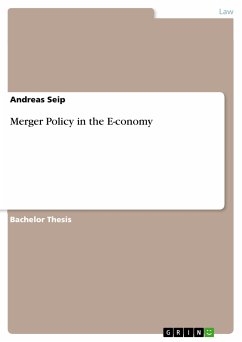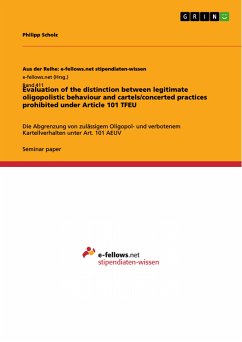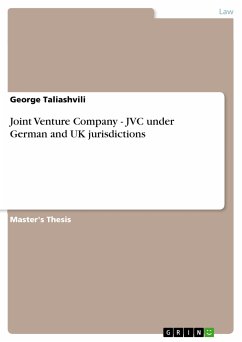Bachelor Thesis from the year 2002 in the subject Law - Civil / Private, Trade, Anti Trust Law, Business Law, grade: First Class, University of Strathclyde (Strathclyde Business School - Law School), course: Strathclyde Business School, language: English, abstract: This paper addresses the economic policy context surrounding the European merger regulation in high-tech industries. The rapidity of technological change raises questions as to the operation of the dynamic parameters underlying high-tech industries. While the identification of those parameters appears to be straightforward, the interpretation of the effects posed by the dynamics is rather controversial. On the one hand, it is argued that the very dynamics of high-tech industries create or strengthen dominant companies whereby consumers run the risk of adopting inefficient technologies. However, the present paper is to contest this reasoning since performance competition and the resultant Schumpeterian process of disequlibria makes a so-called lock-in unlikely. The second chapter is to identify the distinctive parameters of hightech industries, whereby a contrasting analysis between the two dimensions of economic performance, establishes dynamic competition as best utilised to serve the furtherance of consumer welfare. The third chapter is to consider the implications of dynamic competition for current relevant market definition by discussing the deficiencies of current practice. Recent competitive developments appear to confirm a broad, intermarket and technologies-based competition among firms. The fourth chapter, therefore, seeks to propose analytical tools that are capable of evaluating the state of competition more accurately. To that end, the cornerstones of relevant market definition are redefined by including a performance based test, an enquiry into capability explanations and the setting of time frames to assess entry competition. The final chapter is to conclude that although Schumpeterian dynamic competition deals with the expectation of innovation, the proposed analysis is the more accurate approach to intermarket competition. The goal of this paper is to provide a pragmatic framework that assists merger analysis in evaluating the ongoing transformation of industrial organisation in the high-tech environment.
Bitte wählen Sie Ihr Anliegen aus.
Rechnungen
Retourenschein anfordern
Bestellstatus
Storno









